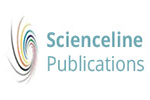(2023) Antioxidant Properties and Toxic Risks of Using Metal Nanoparticles on Health and Productivity in Poultry. Journal of World's Poultry Research. pp. 292-306. ISSN 2322-455X
|
Text
JWPR 13(3) 292-306, 2023.pdf - Published Version Download (657kB) |
Abstract
Metal nanoparticles (NPs) are introduced into various fields of science, particularly poultry farming. Supplementation of metal salts in nanoform can increase the profitability of poultry farming by enhancing meat and egg production. Although their toxic parameters pose limitations on their use, many studies have evaluated the effects of using metal NPs in modern poultry farming on health, productivity, metabolism, and especially antioxidant properties. In addition, the peculiarities of their toxicokinetic and recommended doses that meet safety criteria in practical activities are highlighted. Zinc oxide NPs are one of the most studied compounds in the poultry industry. Their pronounced antioxidant properties, positive effect on productivity and homeostasis of poultry, egg quality, and immune status have been experimentally confirmed. Copper oxide NPs have similar properties but are limited in usage due to their toxicokinetics. Silver and gold NPs emerge as potential alternatives to antibiotics and could solve the resistance problem of microorganisms to antibiotics. Other important NPs used in poultry are Iron and Calcium. In their nanoform, these NPs exhibit high bioavailability, which allows for efficient absorption and utilization by poultry. The methods used to synthesize these nanoparticles make it economically viable to incorporate them into poultry diets, reducing overall expenses compared to similar macroergic compounds. Manganese and chromium NPs positively affect sperm survival in turkeys during refrigerated storage and contribute to increasing the resistance of the broiler chickens' body to heat stress and normalizing the metabolism of sex hormones. In conclusion, the application of metal nanoparticles to poultry is a promising research direction, aiming at the development of feed additives, antibiotics, and growth stimulants due to their antioxidant, bactericidal, and immunomodulatory effects. © (2023), (Scienceline Publication). All Rights Reserved.
| Item Type: | Article |
|---|---|
| Keywords: | Antioxidants; Health; Metal Nanoparticles; Poultry; Productivity; Toxicology |
| Subjects: | S Agriculture > SF Animal culture |
| Divisions: | Journal of World's Poultry Research (JWPR) |
| Page Range: | pp. 292-306 |
| Journal or Publication Title: | Journal of World's Poultry Research |
| Journal Index: | Scopus |
| Volume: | 13 |
| Number: | 3 |
| Publisher: | Scienceline Publication, Ltd |
| Identification Number: | https://doi.org/10.36380/jwpr.2023.32 |
| ISSN: | 2322-455X |
| Depositing User: | Dr. Daryoush Babazadeh |
| URI: | http://eprints.science-line.com/id/eprint/920 |
Actions (login required)
 |
View Item |


 Dimensions
Dimensions Dimensions
Dimensions